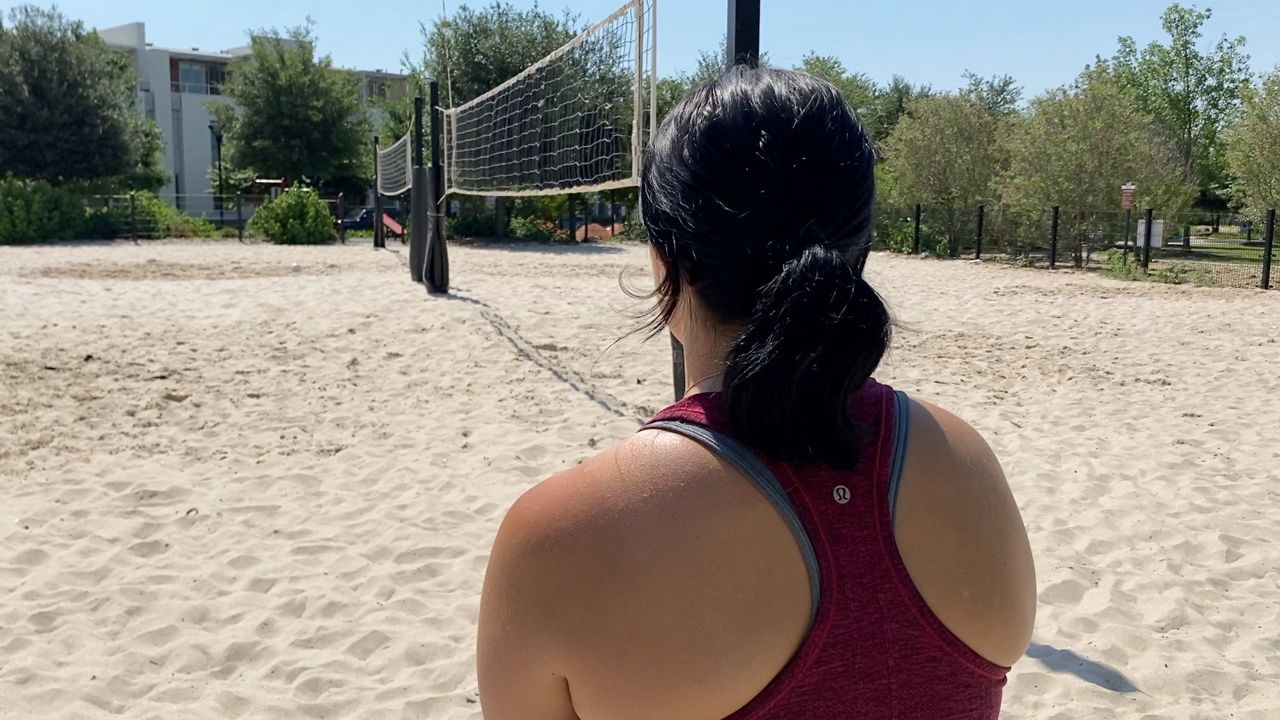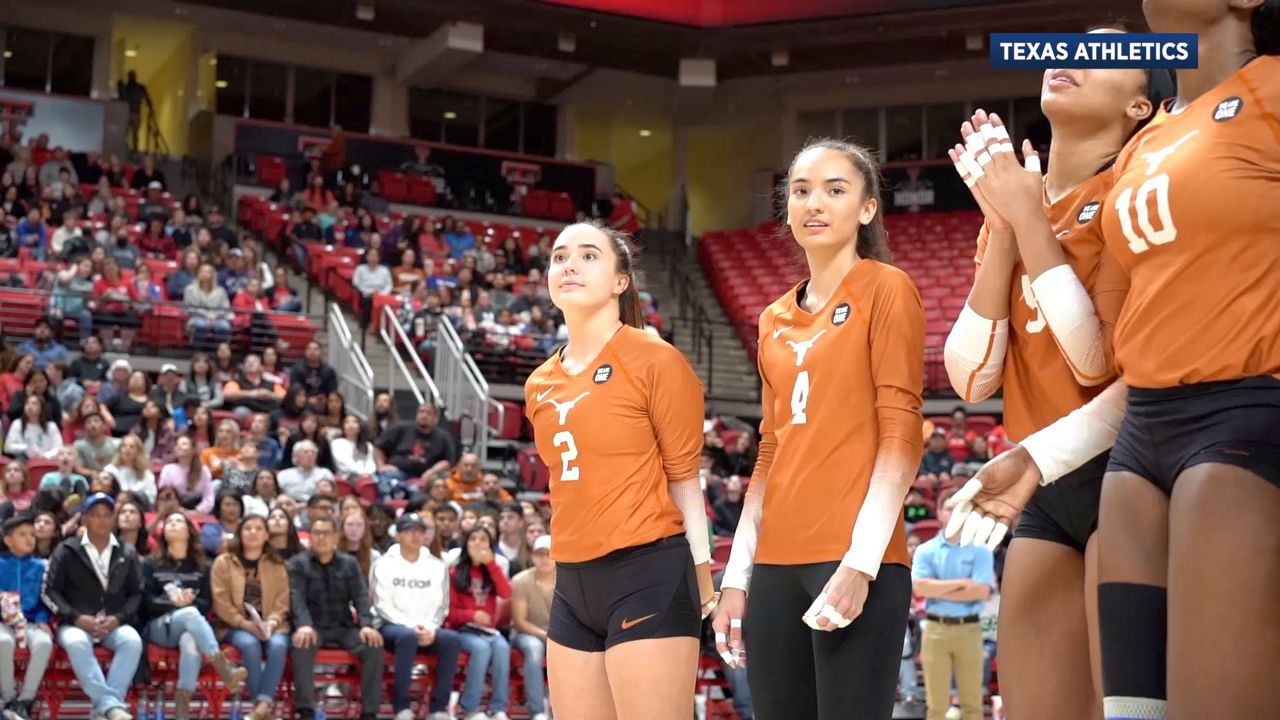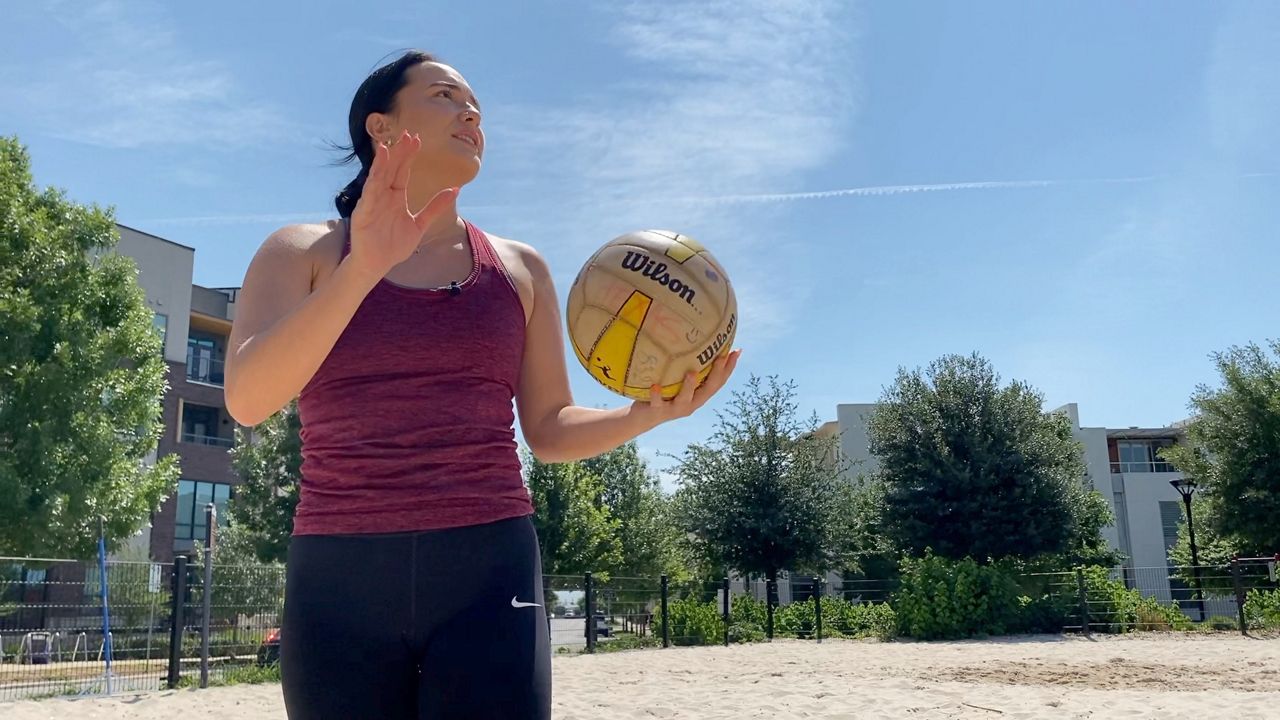AUSTIN, Texas — "I spent the last decade of my life dedicating every single second to getting here and getting to do what I have at the University of Texas,” Jhenna Gabriel said.
Gabriel gave everything to the sport of volleyball until there was nothing left of her to give.

"The physical aspect of it, that gets easier over the four years. Your body gets used to it,” Gabriel said. "Your body gets used to the fatigue. It's the mental part that builds up and never gets any easier."
The pressure of winning, social media and endorsements had taken its toll after a stellar four-year career, which included a run to the 2020 national championship game.

"It was just completely overwhelming, a feeling of just not wanting to show up every day,” Gabriel said.
This past January, the 22-year-old made what she called "the most difficult life decision": to finally put herself first. The Big 12 Setter-of-the-Year left the Longhorns program and began to see a therapist for her daily struggles.
"I walked away feeling lighter, scared for what was next, but knowing I would land on my feet,” Gabriel said.
Tyler Coe, an adviser with the National Alliance on Mental Illness (NAMI) based in Central Texas, says the feeling of overwhelming stress is all too common for college and professional athletes.

"I know it's difficult to look at someone like a LeBron James or Naomi Osaka and see the fame, fortune and strength,” Coe said. “Thinking, I don't want to hear them complain, they don't have the same problems as I do. But they do. They still have to come home and be them."
"It's not unheard of. It's normal to go through these things and need someone to talk to,” Gabriel said.
After taking several months off and spending time at home in Hawaii, Gabriel is now considering playing volleyball professionally overseas or starting a career in sports management. She hopes her message will motivate others to seek the help they need.
"I wish that it was just spoken about more, or there was a tighter-knit community amongst student-athletes where we can talk each other through that,” Gabriel said. “Make each other not only comfortable talking about it, but seeking help as well.”



